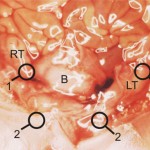Research vibrations
Here is a randomised trial from Denmark to uplift your mood this European summer. Penile vibratory stimulation may help with the recovery of erectile function after nerve-sparing radical prostatectomy [1]. However, it does not hasten recovery of continence. Building on the European theme, we were discussing alternative ways of influencing research communities and colleagues during the European Association of Urology (EAU) meeting in Stockholm. One obvious rising star is ResearchGate (Fig. 1).
ResearchGate (https://www.researchgate.net/) is a social networking site for scientists and researchers that allows them to share papers, exchange questions and find collaborators. ResearchGate has won the digital innovation of the year award from Focus Magazine in 2014. An important accolade in a world increasingly influenced and greatly amplified by the web and social media.
For a generation of scientists using Facebook, Twitter and similar social networks, ResearchGate has become a familiar site to exchange data and knowledge related to research. Similar to the other social network sites people can post comments, form groups, have profile pages and can ‘like’, ‘endorse’ and ‘follow’ other members. One can use it as an online bibliography and can even deposit published papers on the site. Members can also share negative results or experiments that are difficult to publish in peer-reviewed journals.
There is also a project section where groups can work together on projects in a secure environment. Forget Skype meetings at the last minute!
ResearchGate also introduces a new way of measuring the impact of a certain researcher on a scientific community. The ResearchGate score (RG score) is a new bibliometric tool that combines traditional parameters, such as the impact factor, with the user’s activity on the site, like posting or answering questions or the number of people that follow them. Also, the RG score of the peers that follow you will have an impact on your own RG score: the more influential your followers are, the higher your personal RG score will get.
Just as the Klout score is measuring the influence that one has in social media, ResearchGate could become an alternative measure not only of the scientific importance of a certain researcher but also of his or her interactivity. It is a measure for ‘scientific social network reputation’.
At the moment the relationship between impact factor, citation index and the RG score is difficult to establish, as the algorithm that is used to calculate the RG score is not widely known. If ResearchGate wants to establish the RG score as a respected measurement tool, some transparency will be helpful in future.
Since ResearchGate was founded in 2008 by Dr Ijad Madisch, Dr Sören Hofmayer and computer scientist Horst Fickensher, >4 million members have joined and the numbers are steadily increasing. Several other exchange platforms exist on the internet, but ResearchGate is certainly the most widespread at the moment. We think it is here to stay and claim a role as one of the tools to measure one’s scientific reputation.
Dirk De Ridder† and Prokar Dasgupta*
†BJUI Associate Editor, University Hospitals Leuven, Leuven, Belgium, and *Guy’s Hospital, KCL and Editor-in-Chief, BJUI
Reference
- Fode M, Borre M, Ohl DA, Lichtbach J, Sønksen J. Penile vibratory stimulation in the recovery of urinary continence and erectile function after nerve-sparing radical prostatectomy: a randomised, controlled trial. BJU Int 2014; 114: 111–7




I was somewhat sceptical of ResearchGate initially but I think it is actually quite useful. Once you get set up and clarify authorship of a few articles (there is a Declan Murphy forensic psychiatrist and we do get errant mail!), it is quite clever at organising your publications. I like the layout of the dashboard as it is social media-friendly and the RG score seems to becoming popular as a bibliometric measure.
While I have a ResearchGate account, I have been a fairly passive user of RG.
Some concerns that have been raised revolve around copyright as authors can (and are encouraged by RG) to upload publications to their portfolios Other users can then request downloads of those publications – some publishing houses take exception to this form of circulation as it might be in breach of their copyright.
I like the interface and the ease of networking with like-minded researchers.
always thought of ResearchGate as spam, but reconsider given this blog piece.
Researchgate is a social media format positioning itself in the right area IMO.
Social media 2.0 is still in its infancy but what is likely to happen is that we will move from the Walmarts (Google or Amazon equivalents) to the ’boutique’ websites in the same way experienced shoppers know where to go and what to ‘buy’.
Research gate is a valuable opportunity to introduce my application round of the world.thanks research gate